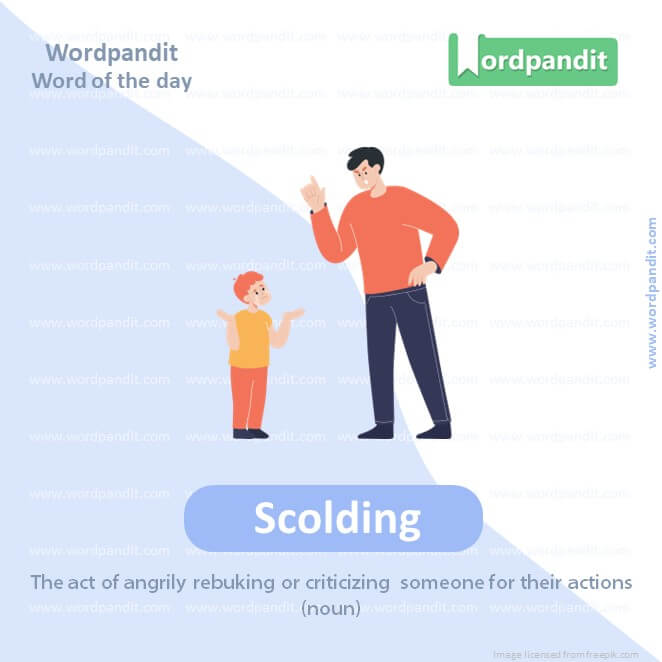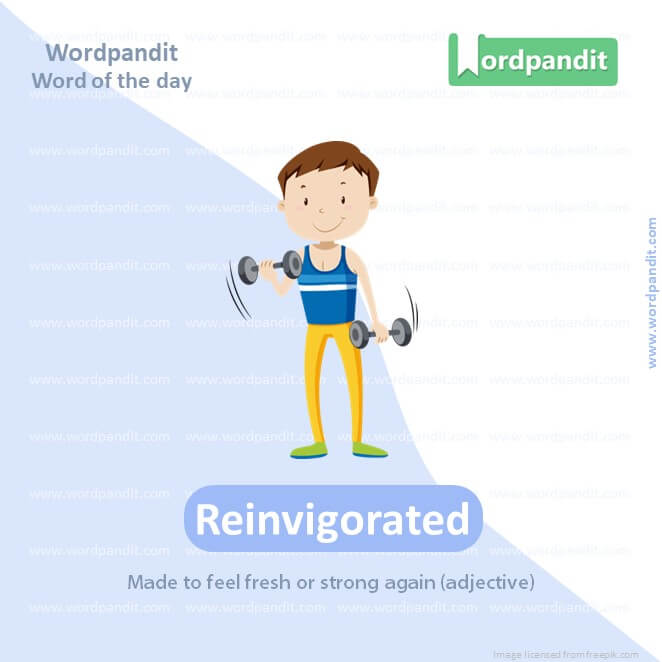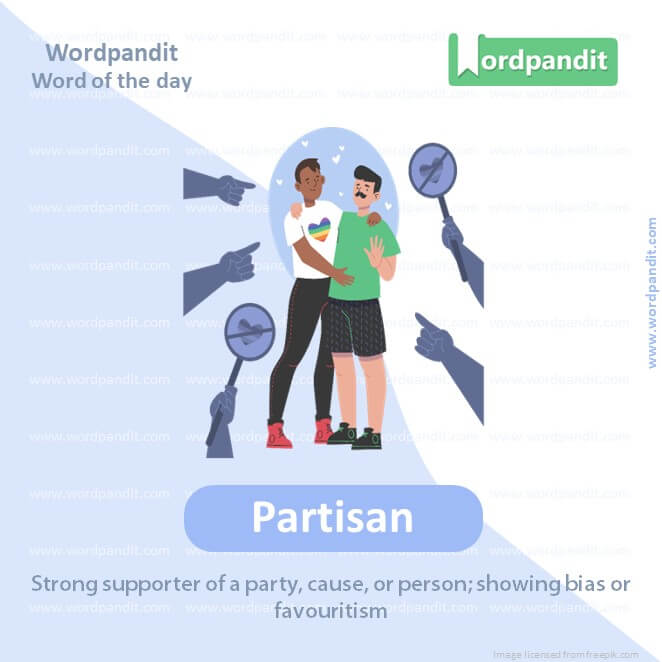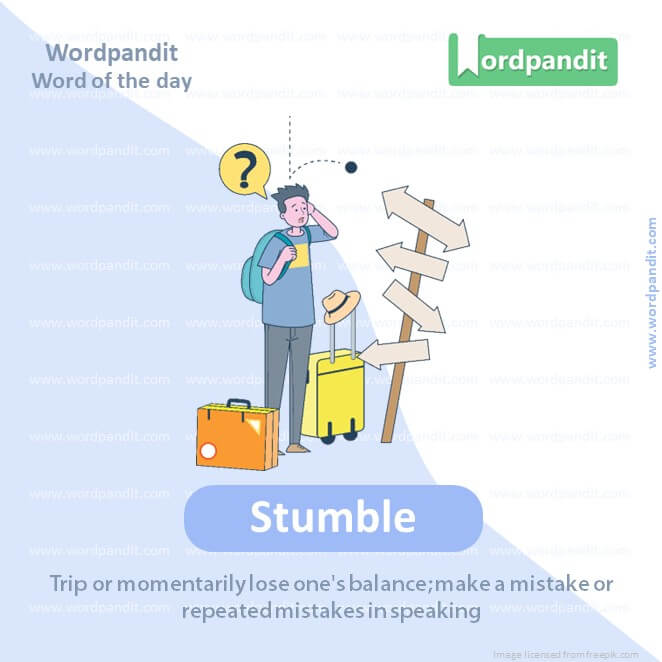Daily Vocabulary Words: List of Daily Used Words in Leading International Newspapers
Hi there. Welcome to this special section @ Wordpandit.
Our endeavour here is very simple: to highlight important daily vocabulary words, which you would come across in leading newspapers in the country. We have included the following newspapers in our selection:
• The New York Times
• The Washington Post
• Scientific American
• BBC
• The Guardian
• Psychology Today
• Wall Street Journal
• The Economist
We are putting in extensive work for developing your vocabulary. All you have got to do is be regular with this section and check out this post on a daily basis. This is your repository of words that are commonly used and essentially, we are posting a list of daily used words. Hence, this has significant practical application as it teaches you words that are used commonly in leading publications mentioned above.
Visit the website daily to learn words from leading international newspapers.

WORD-1: Scolding
CONTEXT: My favorite: scolding them for blowing up the bipartisan border-security deal because Trump called them up and told them he needed it as a campaign issue.
SOURCE: New York Times
EXPLANATORY PARAGRAPH: Imagine when you draw on the walls with crayons, and your mom or dad tells you that it’s not okay in a very firm and sometimes loud voice. That’s called a “scolding.” It’s when someone tells you that you did something wrong in a way that makes you understand you should not do it again.
MEANING: The act of angrily rebuking or criticizing someone for their actions (noun).
PRONUNCIATION: SKOHL-ding
SYNONYMS: reprimand, rebuke, admonishment, chastisement, lecture
USAGE EXAMPLES:
1. After breaking the vase, the child received a scolding from his parents.
2. The teacher gave a scolding to the students who did not complete their homework.
3. He remembered the scolding he got for coming home late.
4. A scolding tone is often used by parents to correct bad behavior.
WORD-2: Prodded
CONTEXT: Every moment when he poked and prodded and made fun of congressional Republicans.
SOURCE: New York Times
EXPLANATORY PARAGRAPH: Imagine if you’re not moving fast enough and someone gently pokes you to make you move or do something quicker. That poke or nudge is like “prodding.” It’s a way to encourage someone to move or act without being too harsh.
MEANING: To poke or nudge someone gently as a reminder or to prompt action (verb).
PRONUNCIATION: PROD-ed
SYNONYMS: nudged, poked, prompted, urged, incited
USAGE EXAMPLES:
1. She prodded her friend to hurry up so they wouldn’t be late.
2. The farmer prodded the cattle to move them into the barn.
3. He prodded the campfire with a stick to keep it burning.
4. The teacher prodded the students for answers during the discussion.

WORD-3: Invigorated
CONTEXT: He was relaxed, invigorated and visibly delighted.
SOURCE: New York Times
EXPLANATORY PARAGRAPH: Imagine feeling super energetic and ready to run around the playground after eating your favorite snack. That feeling of being full of energy and excitement is what “invigorated” means. It’s like when something makes you feel stronger or more alive.
MEANING: Made to feel fresh or strong again (adjective).
PRONUNCIATION: in-VIG-uh-ray-tid
SYNONYMS: energized, refreshed, revitalized, stimulated, rejuvenated
USAGE EXAMPLES:
1. After the morning jog, she felt invigorated and ready for the day.
2. The cold shower invigorated him, washing away the sleepiness.
3. The inspiring speech left the audience feeling invigorated.
4. Drinking fresh juice in the morning invigorated her.

WORD-4: Delighted
CONTEXT: He was relaxed, invigorated and visibly delighted.
SOURCE: New York Times
EXPLANATORY PARAGRAPH: Think of how you feel when you get a surprise gift or when you see your best friend. You feel super happy and excited, right? That’s what “delighted” means. It’s feeling very happy about something or someone.
MEANING: Feeling very pleased, happy, or satisfied (adjective).
PRONUNCIATION: dee-LYT-ed
SYNONYMS: pleased, overjoyed, thrilled, ecstatic, elated
USAGE EXAMPLES:
1. She was delighted to receive a letter from her pen pal.
2. The children were delighted at the sight of the ice cream truck.
3. He was delighted with the surprise birthday party his friends organized.
4. The audience was delighted by the performance.
WORD-5: Anecdotes
CONTEXT: I agree with all three — I was, by then, hungry for specific policy proposals without the cheesy anecdotes or special guests.
SOURCE: New York Times
EXPLANATORY PARAGRAPH: Imagine you have a funny or interesting short story about something that happened to you or someone you know. That story is called an “anecdote.” It’s a small story you share with others, maybe to make them laugh or to explain something.
MEANING: Short, amusing, or interesting stories about real incidents or people (noun).
PRONUNCIATION: AN-ik-dotes
SYNONYMS: tales, stories, vignettes, recollections, reminiscences
USAGE EXAMPLES:
1. Grandpa’s anecdotes about his childhood were always fascinating.
2. The teacher shared an anecdote from her own experience to illustrate the lesson.
3. At the dinner party, everyone was sharing amusing anecdotes.
4. The book is filled with anecdotes from the author’s travels around the world.
WORD-6: Shrinkflation
CONTEXT: American frustrations and grievances, from the unfairness of the tax code to the horrors of prescription drug pricing, junk fees and shrinkflation.
SOURCE: New York Times
EXPLANATORY PARAGRAPH: Have you ever noticed how sometimes a chocolate bar gets smaller but the price stays the same? That’s called “shrinkflation.” It’s when things get smaller in size or amount, but they don’t get cheaper, so you get less for the same amount of money.
MEANING: A reduction in the size or quantity of a product while its price remains the same or increases (noun).
PRONUNCIATION: SHRINK-flay-shun
SYNONYMS: reduction, downsizing, cutback, decrease, diminishment
USAGE EXAMPLES:
1. Consumers are noticing shrinkflation in their favorite snacks.
2. Shrinkflation makes it hard to notice that you’re actually paying more for less.
3. The company used shrinkflation as a strategy to maintain profits.
4. Many brands have resorted to shrinkflation to cope with rising production costs.

WORD-7: Partisan
CONTEXT: He made a point of scoring partisan points, but the overall vibe was much less partisan than common-sense.
SOURCE: New York Times
EXPLANATORY PARAGRAPH: Imagine you and your friends are divided into teams for a game, and you really believe your team is the best. Being “partisan” is kind of like that. It means you strongly support your team, or in grown-up terms, a group or cause, sometimes without even considering other sides.
MEANING: A person who strongly supports a particular group, cause, or person (noun).
PRONUNCIATION: PAR-ti-zan
SYNONYMS: supporter, follower, advocate, devotee, fan
USAGE EXAMPLES:
1. As a partisan of the green team, he wore their colors proudly.
2. The debate became heated due to the presence of partisan supporters.
3. Her articles are known for their partisan viewpoint.
4. The crowd was clearly partisan, cheering loudly for their favorite player.

WORD-8: Stumble
CONTEXT: Cottle No one stumble stood out. But he tried to jam so much in that he frequently went too fast, tripped over his words and ran them together in ways that made him hard to follow.
SOURCE: New York Times
EXPLANATORY PARAGRAPH: Think about when you’re walking and you accidentally trip over something but don’t fall down. That’s called a “stumble.” It’s when you almost fall while walking or running because you hit something with your foot.
MEANING: Trip or momentarily lose one’s balance; make a mistake or repeated mistakes in speaking.
PRONUNCIATION: STUHM-buhl
SYNONYMS: trip, falter, slip, blunder, err
USAGE EXAMPLES:
1. He stumbled on a toy left on the floor but managed to catch himself.
2. In her speech, she stumbled over a few words but quickly recovered.
3. The company stumbled in its attempt to launch a new product.
4. Stumbling in the dark, he searched for the light switch.
WORD-9: Flub
CONTEXT: Goldberg It’s a tie between Biden’s echo of right-wing language about “an illegal” accused of murder and his flub about cheap prescription drugs in Moscow.
SOURCE: New York Times
EXPLANATORY PARAGRAPH: Imagine you’re telling a joke and you mix up the words so it doesn’t make sense. That mistake is called a “flub.” It’s when something is done wrong by mistake, especially when speaking or performing.
MEANING: To make a mistake, especially a silly or embarrassing one (verb).
PRONUNCIATION: FLUHB
SYNONYMS: blunder, err, bungle, botch, goof
USAGE EXAMPLES:
1. He flubbed his lines during the play but kept going.
2. During the presentation, she flubbed the company’s name.
3. The musician flubbed a note but quickly corrected it.
4. Trying to tell the joke, he flubbed the punchline.
WORD-10: Emblazoned
CONTEXT: Marjorie Taylor Greene wore a MAGA hat and a T-shirt cynically emblazoned with “Say her name” and “Laken Riley,” in reference to a student killed in Georgia two weeks ago whom Republicans have used as a symbol of the border crisis.
SOURCE: New York Times
EXPLANATORY PARAGRAPH: Think about a superhero’s costume with a big, bright symbol on the front that everyone can see. That symbol is “emblazoned” on the costume. It means something is decorated with colorful and noticeable designs or words so that it stands out and people can see it clearly.
MEANING: To decorate something in a very noticeable way with symbols, colors, or designs (verb).
PRONUNCIATION: em-BLAY-zund
SYNONYMS: adorned, decorated, embellished, imprinted, inscribed
USAGE EXAMPLES:
1. The hero’s cape was emblazoned with his signature logo.
2. The walls were emblazoned with murals telling the history of the city.
3. The team’s flag was emblazoned with their emblem.
4. Her t-shirt was emblazoned with a bright, bold statement.
Vocabulary Daily Use Words
In the architecturally diverse world of language learning, ‘vocabulary daily use words’ act as a cornerstone. We often take these words for granted, but their significance in day-to-day communications is nothing short of monumental. Mastering these ‘vocabulary daily use words’ should be more than an ancillary task on the sideline; it should take the center stage in your language learning journey.
To begin with, approach ‘vocabulary daily use words’ with the same gusto and reverence as you would an untapped treasure chest. Go beyond the conventional realm of textbooks and explore the world of contemporary literature, newspapers, and digital content. By immersing yourself in these mediums, you’re aligning your learning with real-world language usage, thereby gaining a practical understanding of ‘vocabulary daily use words.’
Memory-enhancing tools add an extra layer of effectiveness to your learning. Flashcards, for example, are a great way to make your study sessions interactive and memory-forging. Coupled with the Leitner system, which is a principle of spacing and repetition, you can ensure better recall and understanding of ‘vocabulary daily use words.’
Furthermore, leveraging mnemonic devices aids in etching the ‘vocabulary daily use words’ into your memory. Associating common words with unique and memorable narratives in your mind enhances their recall. Regular revision and using these words in routine conversations further cement your proficiency.
The potency of immersion as a language learning strategy cannot be emphasized enough. Conversing with native speakers, if possible, provides context to ‘vocabulary daily use words’ and boosts your fluency.
In conclusion, mastering the ‘vocabulary daily use words’ is an enriching journey that requires ongoing effort, continual exposure, and hands-on practice. The strategy of learning through various mediums, using memory-enhancing techniques, leveraging mnemonic devices, and immersion can help demystify these words and enhance your overall language proficiency. So, gear up and embrace the linguistic adventure of mastering the ‘vocabulary daily use words.’











